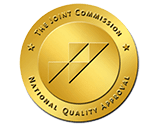
Our Philosophy
At Silver Lining, we believe addiction is the result of one or more of the following:
- Chemical imbalance (eg. depression, anxiety, mood disorders)
- Genetics (family history) or Environmental factors (home, work and social surroundings)
- Unresolved trauma from the past or current abuse
We believe the most effective way to treat addictions is to find the underlying issue(s) and provide professional support to treat each affliction. Our customized treatment program offers one-on-one therapy sessions with knowledgeable, compassionate, and experienced counselors that guide you step by step and uncover unresolved issues that may be fueling the addiction to continue. By identifying the root cause of addiction, you can begin your journey to self-healing and finding peace and balance in life.
The American Medical Association defines addiction as a physical disease of the brain. Fortunately, substance addiction—like drugs and alcohol—can be treated, and the physical changes in the brain can be reversed through the resistance of the addictive agent. This reversal is achieved through the guidance and support of trained clinical professionals who work side-by-side with clients to treat the addiction and its triggers.
It is within this process that Silver Lining operates. We identify underlying factors and causes that may prompt substance use, utilize abstinence (i.e., resistance to the addictive agent), and work through the recovery process by providing our clients with a collaborative individualized treatment care plan tailored to you or your loved ones.
The concept of alcoholism and other drug dependencies as a disease first surfaced early in the 19th century. Despite addiction being recognized as a disease for some time, it remains a challenging and often life-threatening diagnosis without a simple solution or “cure.” For instance, it is not as easy as telling an addict to “just stop.” Instead, addiction is a complex disease with physical, emotional, and social components. In essence, alcoholism and drug addiction are similar to other diseases like diabetes or heart disease.
Research has consistently shown that addiction is a degenerative disease of the brain. In 1956, the American Medical Association (AMA) declared alcoholism an illness, and in 1987, the AMA and other medical organizations officially termed addiction a disease. It defines addiction as “a primary, chronic disease of brain reward, motivation, memory, and related circuitry.” When addiction takes place, it creates dysfunction in the brain, which causes the person to experience:
- Inability to refrain from substance abuse
- Loss of/inability to control addictive behavior
- Inability to recognize the change of behavior due to addiction
- Change in emotional response






